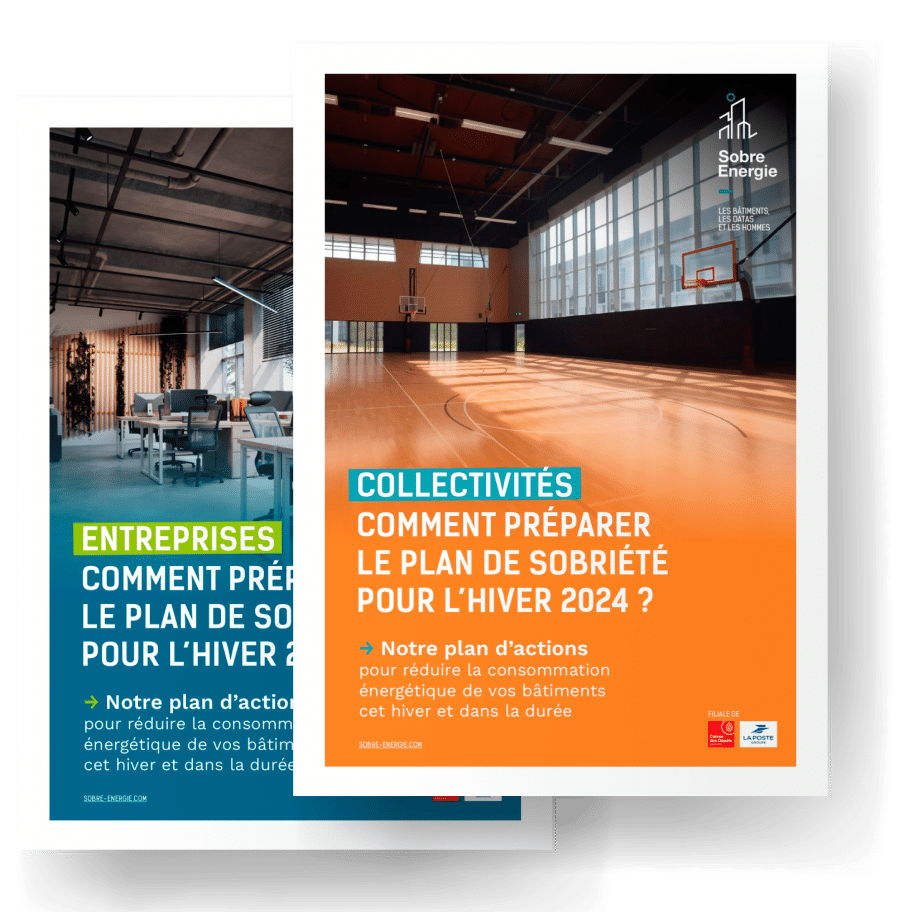Mention can do better.
166 tertiary and residential BBC (low consumption) buildings were analyzed over their first two years of occupancy, as part of the “Demonstrator Buildings” .
A program based on the research and experimentation platform on energy in buildings (PREBAT) managed by ADEME, CEREMA and the Ministry of Sustainable Development.
Conclusion: even in recent buildings, energy consumption is not optimized. Above all, the occupants have a vital role to play.
First lesson: waste
In tertiary buildings, more than half of the total annual electricity consumption takes place during unoccupied periods!
- At night or on weekends, electricity consumption for air conditioning can even represent up to 60%
- 30% for the lighting part, while the building is unoccupied.
Huge figures often unsuspected by building occupants or managers. To realize this, it is essential to be able to monitor this consumption in real time using presence sensors as offered by Sobre Energie.
Thanks to our platform and our sensors installed in your buildings, we can detect inconsistencies in heating, air conditioning or lighting when your buildings are unoccupied. A strong source of energy savings.
Target heating and cooling
This is the second conclusion that emerges from the study. These are in fact the main sources of energy consumption in offices: heating represents on average 50% of the bill , followed by air conditioning.
Discover our best practices to develop to optimize your heating and air conditioning consumption.
And often, uses are not optimized because set temperatures are too high (up to +2.5°C for heating) and too low for air conditioning (between 21° & 25°).
But 1°C less heating is already 7% less energy consumption. In general, the recommended set temperatures in offices are 19°C in winter and 26°C in summer.
“Primary role of occupants”
The tertiary decree requires achieving:
- -40% energy consumption by 2030
- -60% by 2050
- for all tertiary buildings of more than 1000m2.
To achieve energy sobriety, “the role of occupants is essential” insists the CEREMA study.
We must act on behavior, but often the practices of occupants can hinder energy performance, for several reasons:
- complexity of controlling equipment, typically adjusting air conditioning in an open space.
- counterproductive cultural habits
- felt discomfort, the feeling of cold which does not only depend on the temperature but also on the humidity in the room.
At Sobre Energie, we are convinced that engaging the occupants of tertiary buildings in the long term is a pillar of energy sobriety. All occupants, technical representatives, like managers. Sobriety is everyone’s business.
Training, eco-friendly poster campaigns, challenges, at Sobre Energie, our Engagement managers move forward step by step with you to remove the obstacles. Objective: find the right engine to achieve and maintain energy performance over time.
To learn more about our energy efficiency training offerings, click here.
🤖 Summarize this article with an AI
Click on a button to automatically sum up this page with the AI of your choice.
